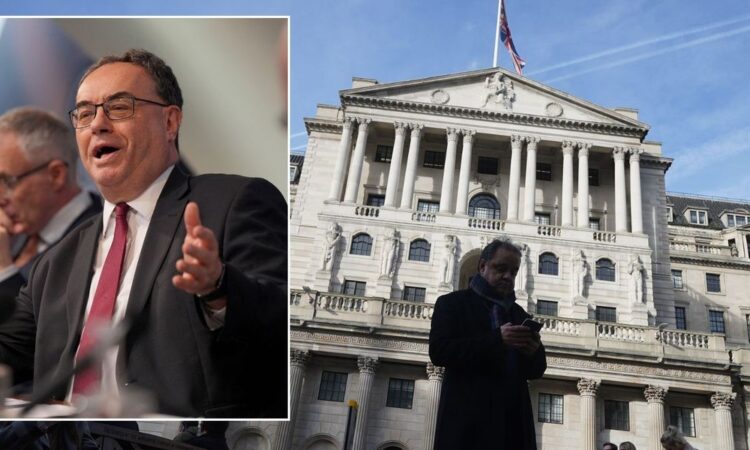Bank of England holds interest rates at 16-year high as UK base rate stuck at 5.25% despite inflation drop

The Bank of England has opted to hold interest rates at a 16-year high despite inflation easing to the financial institution’s desired target. Earlier today, the central bank’s Monetary Policy Committee (MPC) voted keep the base rate at 5.25 per cent with it being held at this level since August 2023.
Governor Andrew Bailey asserted that the Bank’s policymakers “need to be sure that inflation will stay low and that’s why we’ve decided to hold rates at 5.25 per cent for now”.
This comes a day after figures from the Office for National Statistics (ONS) revealed the Consumer Price Index (CPI) fell to two per cent for the 12 months to May 2024.
Despite this being the Bank goal, MPC member appear to be exercising caution in its handling of the economy. Homeowners, businesses and debt borrowers have been saddled with interest-hikes repayments since 2021. Interest rates have been raised in the Bank of England’s fight against inflation.
During yesterday’s meeting, the Bank of England’s MPC voted by a majority of seven–to-two to maintain Britain’s base rate at 5.25 per cent. Only two members preferred to reduce rates by 0.25 percentage points, to five per cent.
Upon confirmation of the rate hold, the pound edged lower against the US dollar and the euro. Sterling dropped 0.2 per cent to 1.269 US dollars and was 0.1 per cent lower at 1.183 euros.
Do you have a money story you’d like to share? Get in touch by emailing [email protected].
 The Bank of England base rate has held interest rates at a 16-year high since it was hiked to 5.25 per cent last August GB NEWS
The Bank of England base rate has held interest rates at a 16-year high since it was hiked to 5.25 per cent last August GB NEWSIn today’s announcement, the committee outlined its reasoning behind leaving interest rates unchanged despite the impact on mortgage holders and other types of borrowers.
Notably, policymakers cite the fact that services inflation has continued to remain stubborn, and wage growth is increasing at a larger rate than initially anticipated.
The MPC stated: “Monetary policy will need to remain restrictive for sufficiently long to return inflation to the two per cent target sustainably in the medium term in line with the MPC’s remit.
“The Committee has judged since last autumn that monetary policy needs to be restrictive for an extended period of time until the risk of inflation becoming embedded above the two per cent target dissipates.”
While savers have benefited from the central bank’s intervention, mortgage repayments have skyrocketed for millions of households over the past two years.
Jonathan Bone, the lead Mortgage Advisor at Better.co.uk, claims the Bank of England is “unwilling to take action” despite the financial predicament many households find themselves in.
He said: “Borrowers have waited three long years for inflation to return to the two target. Now that it’s finally happened, the excitement has dampened as underlying price pressures in the economy have not slowed as quickly as expected, and the ongoing election likely hasn’t helped either.
“The Bank of England remains obstinate, unwilling to take action despite widespread criticism. Those with mortgages are desperate for relief.”
As it stands, analysts are pricing in a Bank of England base rate cut in the later half of the year, around autumn.
Ed Monk, the associate director of Fidelity International, noted that borrowers should expect “more pain” in the months ahead until the Bank finally decides to slash rates.
LATEST DEVELOPMENTS:

Britons have been forced to deal with hiked mortgage and debt repayments due to the Bank’s base rate decision-making
GETTY
Monk said: “Wages continue to rise strongly at around 6%, adding to inflationary pressure, even if the Bank has reported some loosening of the labour market. Prices for services are also still running hot.
“It’s likely that rate-setters at the Bank will focus on that rather than the headline inflation numbers which is – for now at least – back on target.
“It all means the pain for borrowers goes on. With inflation back to 2% there will be increasing pressure on the Bank of England to justify the continuation of high rates.
“For savers, now represents a rare opportunity to achieve returns on their money which beat inflation by a clear margin. It should be remembered also that risk-assets such as shares can also benefit during such periods and have a history of generating inflation-beating returns that outpace cash.”






